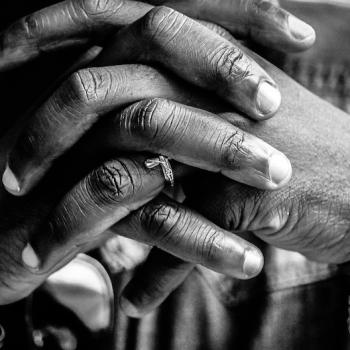
I was watching the game the other day when, at a critical moment, the umpire made a horrendous call, costing my team the game. It was unbelievable. This same umpire has done this to us before. For some reason, he has it out for us. The league is behind this too. After all, every time this umpire makes a call like this, they never discipline him.
What we do with sports, we do with life. We are really good at looking at matters from our perspective. Why should we consider even other perspectives? After all, they are wrong.
This is one thing when it comes to sports. It is something altogether different when it comes to war.
The beautiful Queen Bathsheba
Suppose I were to ask you what you thought of Bathsheba. I suspect those familiar with this biblical figure would refer to her as King Solomon’s mother, King David’s wife, and a beautiful woman.
The biblical writer, however, intends for us to see things differently.
2 Samuel 11 begins, “Then it happened in the spring, at the time when kings go out to battle” (11:1). In laying this foundation, the author provides a clue as to how they want us to understand the narrative.
The following line, in fact, is explicit: “David sent Joab and his servants with him and all Israel, and they destroyed the sons of Ammon and besieged Rabbah. But David stayed at Jerusalem” (11:1).
The author intends for us to immediately recognize that David is not off to war like the kings are supposed to be (whatever that may mean is irrelevant). In other words, David is not doing what kings are supposed to do.
As the text continues, David sees a woman who is “very beautiful” (11:2) bathing. David inquires as to her identity. He is told she is “Bathsheba,” the wife of “Uriah the Hittite” (11:3). He summons her and lies with her (11:4). And she becomes pregnant.
The story is pretty straightforward. David commits adultery with Bathsheba. He then complicates the matter even more when he attempts to cover it up by summoning her husband home so that perhaps he might sleep with his wife and come to believe the child is his own (11:6).
That five times Bathsheba’s husband is named “Uriah the Hittite” (11:3, 6, 17, 21, 24; see also 12:9, 10) provides another textual clue as to the author’s perspective. Uriah is a Hittite! He is not even an Israelite. Yet, this Hittite behaves more faithfully to the laws of Israel than David.
Furthermore, Uriah, unlike David, is off the war. Moreover, Uriah, unlike David, is unwilling to have sexual relations, even with his wife (who was very beautiful), during a time of war: “The ark and Israel and Judah are staying in temporary shelters, and my lord Joab and the servants of my lord are camping in the open field. Shall I then go to my house to eat and to drink and to lie with my wife? By your life and the life of your soul, I will not do this thing” (11:11).
In addition, David violates the law by coveting another man’s wife. He commits adultery (rape). Then he attempts to cover it up by lying. And when that fails, David sends Uriah to the front lines to have him killed (11:14-17).
David has broken nearly every commandment.
Why do Christian readings of this text often aim to soften the gravity of David’s sins?
We make such efforts to vindicate David because David was “a man after God’s own heart” (1 Sam 13:14). Therefore, he couldn’t have been that bad.
How can a man after God’s own heart commit such heinous acts? Answer: perhaps they weren’t as egregious as we thought.
Therefore, instead of acknowledging the sex as rape—when a king sends for you, you go, and when the king brings you into the bedroom, you don’t have much say—we propose that it was consensual. Sometimes, we even place blame on Bathsheba. She was the one illicitly bathing. She should have been more discreet. After all, she had to know that David could have seen her from his rooftop. Thus, she brought some of this upon herself.
Sometimes, we soften David’s sins by chalking it up to the old “Men will be men’ cliche. Or we may suggest, “We never said David was perfect.” Or, perhaps, we might wonder with amazement that God used David despite his sin.
Reading from Bathsheba’s perspective
But what if we read the story from the perspective of Bathsheba, Uriah, or the child? Bathsheba’s perspective forces us to recognize that she was summoned by a king while her husband was away and forced to have sex. She must have wondered: What will Uriah think? What will Uriah do? What will happen to Uriah if tries to retaliate?
As the story progresses, Bathsheba’s situation only worsens. She becomes pregnant, which certainly compounds her trauma. There will be no way to hide this from her husband now. What will she do with this child? Uriah will certainly not want the child. What will the king want when he learns he has a child?
The king then murders her husband (she may only have known that he died in warfare). Though we might suppose that this alleviates some of her concerns, it mitigates the fact that she must now grieve the death of her husband. Her plight has worsened. Now she is pregnant and a widow.
The story continues to worsen when her child dies.
Why is it that I have only heard this story from David’s perspective? Why have I never heard anyone discuss the story from Bathsheba’s perspective? Why have we not stopped to process the pain and trauma she endured?
It is easy to justify this approach. After all, the account in 2 Samuel 11 is about David. He is the hero of the story. He is a man after God’s heart. This is especially true for those of us who cannot identify with the oppressed. Furthermore, since we aim to be like David, “men who after God’s own heart,” we are even more inclined to read the text from this perspective.
Those who have been oppressed, however, who have suffered abuse from those in power, are far more likely to read the account from the perspective of Bathsheba or Uriah.
Is one reading to be favored over another?
The problem with answering this question resides in the fact that it implies, “Which reading is the correct reading?” as if there is only one correct reading.
My first point is that we must learn to read from multiple perspectives. Otherwise, we are going to come away with a limited understanding. We must broaden our scope and learn to see things from the side of the other.
NB: it is worth noting that 1-2 Chronicles omits the account of rape and the murder of Uriah. Bathsheba, in fact, is only mentioned once (1 Chron 3:5), and even then in a genealogy where she is simply listed as the mother of Solomon.
Second, we must recognize that other perspectives exist and they are not inherently wrong. This may seem obvious to some, but in practice, it is regularly neglected.
Third, we not only regularly fail at points one and two, but we assume that our perspective is right and all others are wrong. This is why we listen to carefully selected news sources. Why should we listen to others? They are wrong, and mine is right.
If we only allow our limited and biased perspectives to guide our view of the world, we will encounter difficulties in understanding others.
Not only that, but we are also likely to have a warped understanding of things.
Which side would Jesus be on?
I suspect most Christians would have no trouble asserting that Jesus would be on everyone’s side. But I think the answer is more nuanced. The more I study Jesus, the more I am convinced that while he loved everyone, he favored the marginalized, the oppressed, and the poor.
How does this affect our understanding of the war on Gaza?
. . . to be continued.
Our goal is to keep these posts free of charge. I do not intend to ever hide them behind a paywall. I can only do this if those of you who have been blessed by them and can afford to give ($5, $10, $25, or more/month) do so. You can give a tax-deductible contribution by following this link.
Please share this post and let others know about determinetruth.


















